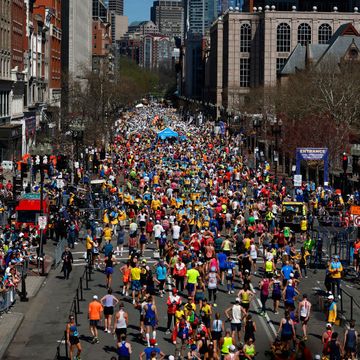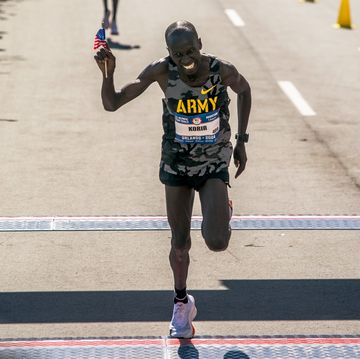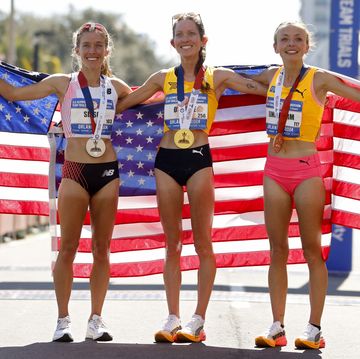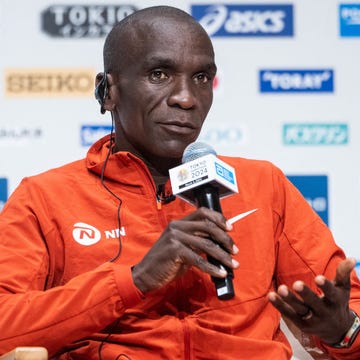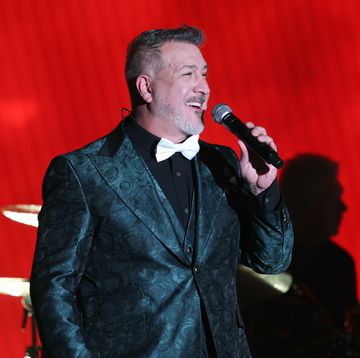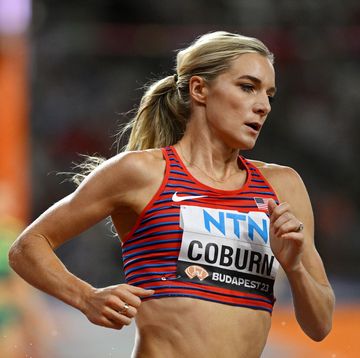László Tábori, a leading track runner for his native Hungary in the 1950s who became an influential coach over several decades in California, died on May 23. He was 86.
In 1955, Tábori (above, left) was the third man to run sub-4:00 for the mile, and he equaled the world record for 1500 meters. But his Olympic aspirations were frustrated by politics.
Born into near poverty in Košice in 1931, Tábori spent his youth under the rule first of fascism and then communism, and he shared Hungary’s horrific sufferings in World War II. Showing talent as an athlete, he became one of the best of the successful training group coached by the innovative Miháli Iglói at the Honvéd (Army) club in Budapest. Tábori was on three occasions a member of Iglói relay teams that broke the world record for 4 x 1500 meters.
In 1955, Tábori dramatically emerged as a world force in his own right. At the British Games in London in May, almost unknown in the invitational one-mile field, Tábori not only beat British idols Chris Chataway and Brian Hewson, but he became only the third man in history to run faster than four minutes, finishing in 3:59.0. That put him third all-time to John Landy’s world record 3:58.0, and Roger Bannister’s 3:58.8.
Ranked No. 1 in the world at 1500 meters in 1955, Tábori was a joint favorite, with local hero Landy, for the 1500 meters at the Melbourne Olympics in November-December 1956. But less than four weeks before the Games opened, a popular uprising against Soviet rule in Hungary brought Russian tanks, armies, and vicious reprisals into the streets of Budapest. Most of the conflicted Hungarian team went to Melbourne. But Tábori said later, “Mentally you were not there. What the hell am I doing this for?”
He finished a disappointing fourth in the 1500, overshadowed by the brilliant finish of Ireland’s Ron Delaney. Tábori also placed sixth in the 5,000 meters, the race famously dominated by the USSR’s Vladimir Kuts.
Melbourne suddenly presented a life-changing choice—the opportunity to defect. It was not an easy decision. Hungary was under the Soviet boot, but its runners received state support and were national heroes, “poor kids who suddenly became famous,” in Tábori's words. Tábori and Iglói chose to abandon home for unknown prospects in America.
Unable to speak or read English, committed to a strictly amateur sport, outside the American college system, and now without the army support that came in Communist states, Tábori found his new life far from easy. Sports Illustrated provided support for several months, and top American miler Jim Beatty helped him to learn some English after Tábori and Iglói spent time at the University of North Carolina. Tábori took evening classes, resumed training, and paced Beatty to American records at 1500 meters and 5,000 meters. They moved eventually to Los Angeles, where in the unlikely setting of Dorsey High School track, Iglói re-established himself as a cutting-edge coach and began to produce the best cohort of distance runners America had known.
Tábori's star quality and work capacity were central to the rising group, and by 1960 he was able to win 11 straight races in a tour of Europe. But he was a man without a nation, and a campaign to get him admitted as an individual to the 1960 Olympic Games was unsuccessful.
In 1962, struggling financially and lacking a national team to run for, Tábori retired and began to coach, following Iglói's methods. He mentored Valley Junior College to championships and several national junior track relay records, and he coached the San Fernando Valley Track Club for 35 years.
Even more significant, he began to guide several emerging women distance runners and was one of the first coaches in the world to understand that women runners can sustain training workloads similar to men’s. With Jacqueline Hansen twice setting the world record for the marathon, Miki Gorman winning the Boston and New York City marathons in record times, and Leal-Ann Reinhart taking the U.S. marathon championship in 1978, it is arguable that Tábori’s most lasting contribution to the history of running was in the development of the women’s marathon.
“He was very demanding but never asked you to do more than you could do,” Hansen said. You definitely felt that short of being in hospital or the morgue, you better show up to work out.”
Tábori became a mechanical engineer and for several years also owned a sporting goods store. He continued to coach, more recently at the University of Southern California. One of his USC athletes, Duane Solomon, ran 1:42.82, the second-fastest by an American, for fourth place in the 800 meters at the 2012 London Olympics.
Beyond the results, there are many stories of Tábori providing personal support for young runners, helping them to attain sports scholarships, and remaining loyal to them in all circumstances.
“You have lots of friends when you’re number one, but I’m your friend when you’re not,” one has quoted him as saying. His success with women runners may be due to his philosophy, learned from Iglói, that “Your training should be as individualized as you are.”
Tábori was honored as New York Road Runners Coach of the Year in 1978, with the Runner’s World Paavo Nurmi Award in 1979, induction into the Hungarian Athletics Hall of Fame in 1995, and with the International Olympic Committee’s award for lifetime achievement in 2002. He was also able to join a reunion of the first five men to run sub-4:00 for the mile held at the London Olympics in 2012. László Tábori. The Legendary Story of the Great Hungarian Runner, a Biography by András Kö, was published in Hungarian in 2008, and in translation by Ralph Berkin in 2012.
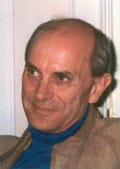
Roger Robinson is a highly-regarded writer and historian and author of seven books on running. His recent Running Throughout Time: the Greatest Running Stories Ever Told has been acclaimed as one of the best ever published. Roger was a senior writer for Running Times and is a frequent Runner’s World contributor, admired for his insightful obituaries. A lifetime elite runner, he represented England and New Zealand at the world level, set age-group marathon records in Boston and New York, and now runs top 80-plus times on two knee replacements. He is Emeritus Professor of English at Victoria University of Wellington, New Zealand, and is married to women’s running pioneer Kathrine Switzer.








